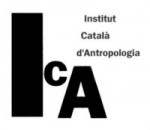7-10 Noviembre 2012
Facultat de Geografia i Història - Universitat de Barcelona
Miércoles 7/11/2012
Jueves 8/11/2012
Viernes 9/11/2012
Sábado 10/11/2012
On Immigration, Fascism and the Crisis in Greece Today
Assistant Professor of Art History and Theory at the School of Architecture, AUTh, Coordinator of the “Cultural Theories” module at the Interuniversity Postgraduate Programme in Museology, AUTh and University of Western Macedonia (liayoka@arch.auth.gr)
Abstract
Α lot has been written about how we decide to discuss political affairs without falling into the trap of simplifying facts and taking power structures for granted. Power structures are for granted however until they are challenged. A few years ago Greek Universities and the bar culture were still a paradise for Erasmus students, the islands an agreeable yet maybe increasingly expensive place for vacation. And it was plain to see, almost everywhere, that a significant part of the population, and that does not only include youth, subscribed to a kind of rhetoric of anti-authoritarianism and vague social justice. Public spaces in the cities were often used as commons, and it was much more fashionable to be an anarchist than a neonazi. This has changed. We will try to merely outline, rather than to explain, this change, and will point to a simple fact: That today we are experiencing a devaluation of labor and life in Greece and that this seems to be part of a larger picture. This larger picture has been described in different ways. Subcomandante Marcos declaring, in 1997, that the 4th World War has begun, has given a lucid account of it:
“.[T]here is a proliferation of “regional wars” and “internal conflicts”; capital follows paths of atypical accumulation; and large masses of workers are mobilised. Result: a huge rolling wheel of millions of migrants moving across the planet. As “foreigners” in that “world without frontiers” which had been promised by the victors of the cold war, they are forced to endure racist persecution, precarious employment, the loss of their cultural identity, police repression, hunger, imprisonment and murder (.) The objective of neoliberalism’s migration policy is more to destabilise the world labour market than to put a brake on immigration. The fourth world war – with its mechanisms of destruction/depopulation and reconstruction/reorganisation – involves the displacement of millions of people. Their destiny is to wander the world, carrying the burden of their nightmare with them, so as to constitute a threat to workers who have a job, a scapegoat designed to make people forget their bosses, and to provide abasis for the racism that neoliberalism provokes.” (Subcomandante Insurgente Marcos, The fourth world war has begun, 1997)





